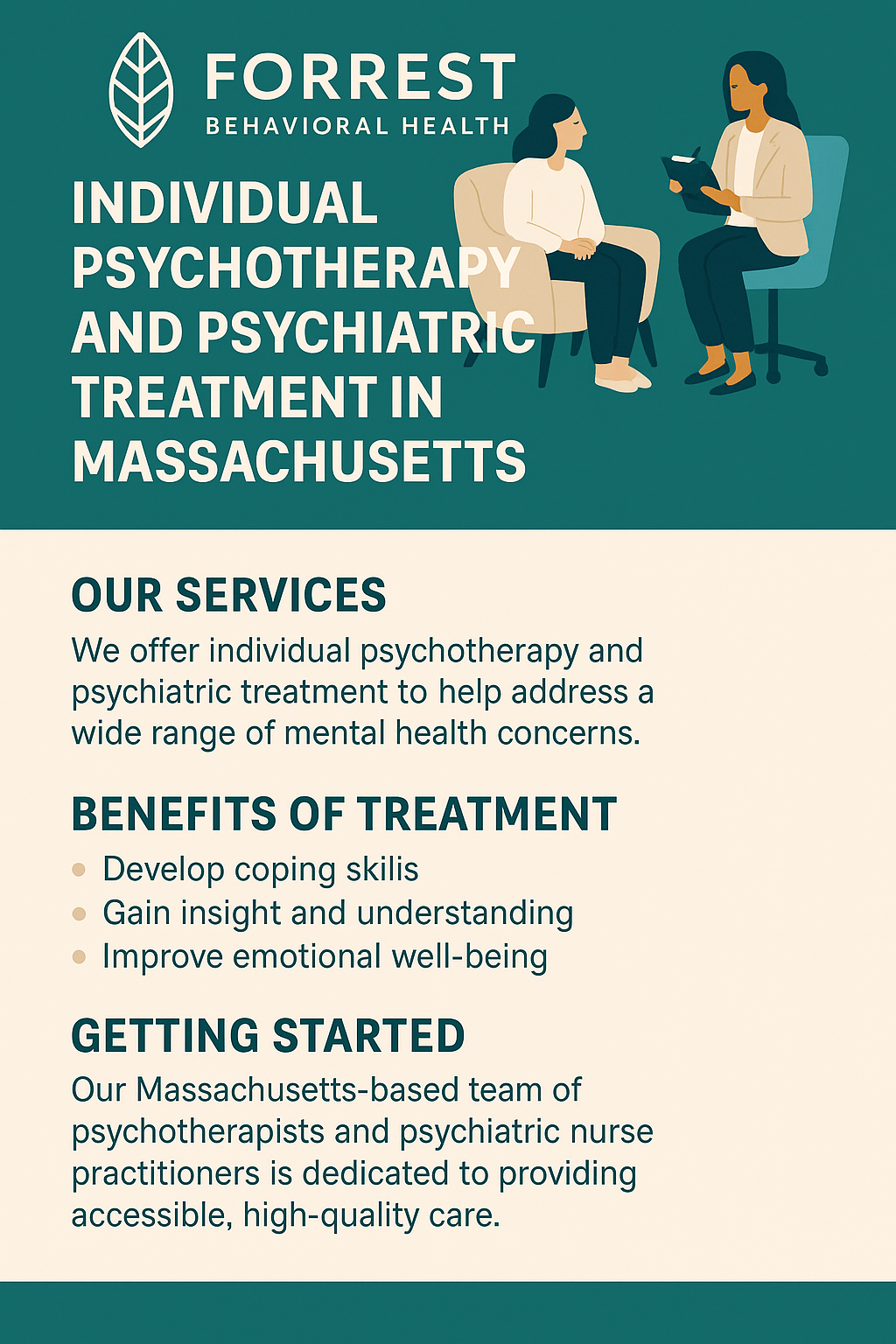
If you have ever been in, or seen, a car accident, you’d understand the immediate need for medical care. Besides the lacerations and broken bones, even a tiny scratch shouldn’t be ignored. Since we can see such damages, we can appropriately address them.
But the tricky part is the damage that isn’t visible – the mental, psychological, and behavioral implications that are often labeled less urgent.
It’s understandable to treat the visible damage first, but these “less urgent” injuries need to be prioritized just as much. Because these can be developed as forms of depression during rehabilitation or anxiety.
And if still unaddressed, they develop into their worse self in the form of post-traumatic stress disorder (PTSD). About 35% of patients – receiving critical care in hospitals as a result of a traumatic injury – develop PTSD and experience its symptoms in the form of intrusive thoughts and/or nightmares.
This is where the importance of Psychiatric Treatment becomes undeniable. Psychiatric Treatment is the most recommended form of treatment for the symptoms mentioned above as well as a few more that we will discuss ahead in this article.
By reading ahead, you’d be able to understand if you (or someone you know) can benefit from Psychiatric Treatment. Forrest Behavioral Health is also here to help you answer this question. You can contact us by clicking here or calling 781-570-5781.
What Is Psychiatric Treatment?
Psychiatry is a medical field that’s designed to diagnose, prevent, and treat various mental health disorders. This is also sometimes referred to as psychological, however, there’s a difference which we’ll explain ahead.
Psychiatric Treatment is a discipline that deals with a range of conditions such as anxiety, stress, ADHD, mood disorders, etc. Additionally, it is also most recommended for some of the more serious conditions like schizophrenia, bipolar disorder, or PTSD – which (as mentioned above) can sometimes develop due to a traumatic incident.
Why is it more recommended? That’s better explained by understanding the difference between psychology and psychiatry, next.
What Makes Psychiatric Treatment So Different Than Psychological Treatment?
Both, psychologists and psychiatrists, aim to improve mental health, which is why both these terms are often used interchangeably. However, the major differences lie in each of their approaches, qualifications, and their eligibility for various treatments.
Who Are Psychiatrists?
Psychiatrists are actually the medical doctors who can prescribe medications and practice various medical treatments. These include some of the sophisticated and less popular techniques like transcranial magnetic stimulation (TMS) or Spravato (Esketamine).
Their treatment methods are also said to be more advanced than psychologists; why—their extensive education and years of training.
Who Are Psychologists?
Individual Psychotherapy, Talk Therapy, or just plainly Psychotherapy is the type of treatment that’s typically offered by psychologists. Hence, they are often called therapists. Instead of a medical degree (like psychiatrists), you’ll find that most psychologists hold doctoral degrees in psychology.
As for their treatment methods, psychologists employ techniques like cognitive behavioral therapy (CBT) and dialectical behavioral therapy (DBT).
Top Benefits Of Psychiatric Treatment In Mental Health Treatment
Years And Years Of Education And Training
To be eligible for delivering Psychiatric Treatment, the medical professionals have to go through extensive education and training.
First, they complete their undergraduate and then graduate studies – that’s typically 4 years of undergraduate and another 4 years of medical school. Then, the psychiatrist goes through another 4 years of residency training.
And then to be the cream of the crop, they further go for specialization in specific branches including children and adolescents, forensic, addiction, perinatal, or elderly. The specialization takes around 1 to 2 years.
So, to sum up, that’s approximately 13-14 years of education and training after high school *whew*.
Comprehensive Diagnosis And Complete Mind-Body Care
While talk therapy is common in psychology, psychiatrists take a much more detailed approach. Along with building a relationship with the patient (via talk therapy), psychiatrists consider their personal history, lifestyle choices, and environmental influences.
Afterwards, they utilize their vast (years of) medical knowledge to understand a person’s mental, emotional, and physical health. This helps them answer whether the individual’s mental health condition is a psychological condition or does it stem from an underlying physical condition.
Finally, a tailor-made treatment and medicinal plan is prescribed to treat the chemical imbalances in the brain, physical ailment, or both!
Better Equipped For Treating Serious Mental And Physical Issues
The previous 2 points mentioned build up on this benefit that Psychiatric Treatment is better equipped for serious issues. This is because the medical professional has years of education and training (at least 13 years) and the diagnosis process is much more meticulous.
So, while general practitioners can treat depression, anxiety, or behavioral disorders, Psychiatric Treatment can treat more serious conditions such as:
- PTSD
- Extreme Depression
- Schizophrenia
- Bipolar Disorder
- Addiction
- Co-Occurring Disorders
Multidisciplinary Care Leads To A More Holistic Healing
Psychiatrists are well-connected in the medical community, and they have tons of connections with other experts in the field. They collaborate frequently with professionals in other disciplines such as psychologists, behavioral and occupational therapists, and social workers.
With this collaborative approach, a comprehensive treatment plan is developed according to the personalized needs of the individual. The multidisciplinary teams can effectively address the psychological, occupational, and social aspects of the individual’s healing.
More Benefits Of Psychiatric Treatment
- More Treatment Options – typically uncommon such as electroconvulsive therapy (ECT).
- Prevents Future Problems From Developing – thanks to developing relevant strategies.
- Reduction In Symptoms – by learning ways to reduce or best manage symptoms.
- Improved Communication – by understanding the complications and how to deal with them.
- Better Relationships – as a result of better communication.
- Living A Happier Life – thanks to all the above-mentioned benefits of Psychiatric Treatment.
Wrap Up And How You Can Find A Psychiatrist
Becoming a Psychiatrist is no easy feat as it takes at least 13-14 years of education and training. Which means that if you’re seeking Psychiatric Treatment, you can be sure to receive a professional treatment with years of knowledge behind it.
Another added benefit is the meticulous approach, that is also multi-disciplinary, so your treatment can address the root cause of your concerns.
If you’d like to set up an appointment, or if you need a consultation, for Psychiatric Treatment, call 781-570-5781 or visit Forrest Behavioral Health.

